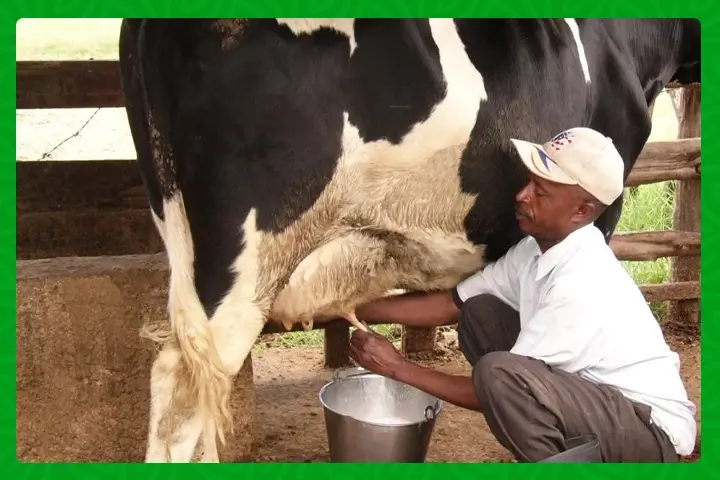
The Kenyan dairy sector is on the brink of transformation. On May 14, Nyeri County witnessed the launch of MaziwaPlus, a three-year initiative designed to curb mastitis, reduce excessive antibiotic use and boost incomes for smallholder farmers who supply most of Kenya’s milk. Backed by the International Livestock Research Institute (ILRI) and funded by the International Centre for Antimicrobial Resistance Solutions, MaziwaPlus brings together government bodies, universities and farmer groups in a united front against one of dairy’s greatest threats.
Why Mastitis Matters for Kenya’s Dairy Future
Mastitis, the painful inflammation of the udder often caused by bacterial infection, strikes at the heart of milk production. When cows develop clinical mastitis, farmers spot swelling, heat or discoloured milk almost immediately. But subclinical mastitis hides beneath the surface, silently cutting yields and milk quality. In Kenya’s smallholder farms, limited access to laboratory tests means mastitis is usually treated on sight. The result is widespread and often inappropriate use of antibiotics, which drives up costs, undermines milk safety and contributes to the global menace of antimicrobial resistance.
“MaziwaPlus supports the government’s goals to increase farmer incomes, ensure food security and protect public health,” says Allan Azegele, Director of Veterinary Services at the Ministry of Agriculture and Livestock Development. “Strong partnerships between researchers, government, farmers and the private sector will make a real difference.”
Research-Driven Insights to Shape Real-World Solutions
Before rolling out on-farm interventions, MaziwaPlus will explore the root causes of mastitis and antibiotic overuse. The project team will:
- Survey farmer practices to understand milking routines, hygiene standards and treatment decisions
- Assess animal health service delivery to identify gaps in veterinary outreach and diagnostics
- Calculate the economic toll of mastitis on households and cooperatives
These findings will guide the co-design of intervention modules alongside farmers, cooperatives and veterinary officers. The County Government of Nyeri will ensure every solution fits local realities, from seasonal work patterns to milking equipment availability.
Reducing Antibiotic Resistance with Better Practices
A recent study in BMC Veterinary Research found that about 90% of animal health providers in Kenya diagnose mastitis by sight and herd history alone. Without lab tests, treatment often means defaulting to broad-spectrum antibiotics. MaziwaPlus intends to change that by teaching farmers and animal health providers to:
- Implement strict hygiene protocols before and after milking
- Use simple on-farm tests for early detection of subclinical infections
- Follow standardised treatment guidelines that reserve antibiotics for confirmed cases
- Adopt improved husbandry practices to strengthen cow immunity
By cutting down mastitis incidence, farmers will need fewer antibiotic courses. This not only lowers farm costs but also helps preserve the effectiveness of vital medicines for both animals and humans.
What Farmers Stand to Gain
MaziwaPlus is more than a disease control project. It’s an investment in farmer livelihoods and community health. Expected benefits include:
- Higher Milk Yields
Healthier cows produce more milk, increasing daily income for smallholder families - Safer Dairy Products
Reduced antibiotic residues in milk protect consumer health and maintain market confidence - Cost Savings on Treatments
Fewer mastitis cases mean lower veterinary bills and less time lost diagnosing and treating sick cows - Improved Animal Welfare
Cows free from chronic udder pain live healthier, more productive lives - Environmental Gains
Better waste management and healthier herds contribute to lower greenhouse gas emissions per litre of milk
“The science behind MaziwaPlus is strategically important,” says Dishon Muloi, ILRI scientist. “It’s a win-win for everyone in the dairy value chain: more milk and more money.”
Building a Sustainable Dairy Future
As MaziwaPlus rolls out in Nyeri County, it will serve as a blueprint for dairy systems across Kenya and beyond. By combining rigorous research with farmer-led action, the initiative aligns perfectly with the government’s push for sustainable livestock development.
Key to long-term success will be:
- Ongoing training and support for farmers and animal health workers
- Strengthened policy frameworks that mandate antibiotic stewardship and regular udder health monitoring
- Accessible low-cost diagnostics that empower even the smallest farms to track herd health
When the three-year project concludes, stakeholders aim to hand over proven intervention packages that any county can adopt. This legacy of co-created solutions will help safeguard milk quality, protect public health and ensure smallholder farmers thrive in a changing world.
The launch of MaziwaPlus marks a pivotal moment for Kenya’s dairy industry. By tackling mastitis head-on and cutting unnecessary antibiotic use, this partnership paves the way for healthier cows, safer milk and stronger rural economies. For the thousands of families who depend on dairy for their daily bread and butter, MaziwaPlus offers a clear path to more resilient, profitable and sustainable farming.
Stay updated with the latest farming tips and agriculture industry news from Africa by subscribing to our newsletter. Don’t miss out on valuable insights and updates. Follow us on Twitter, LinkedIn, and Facebook to join our farming community and stay connected with us.


















